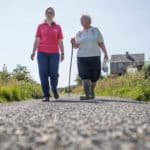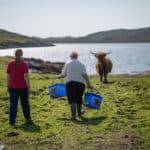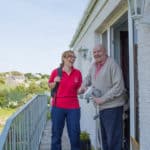Debra Vickers
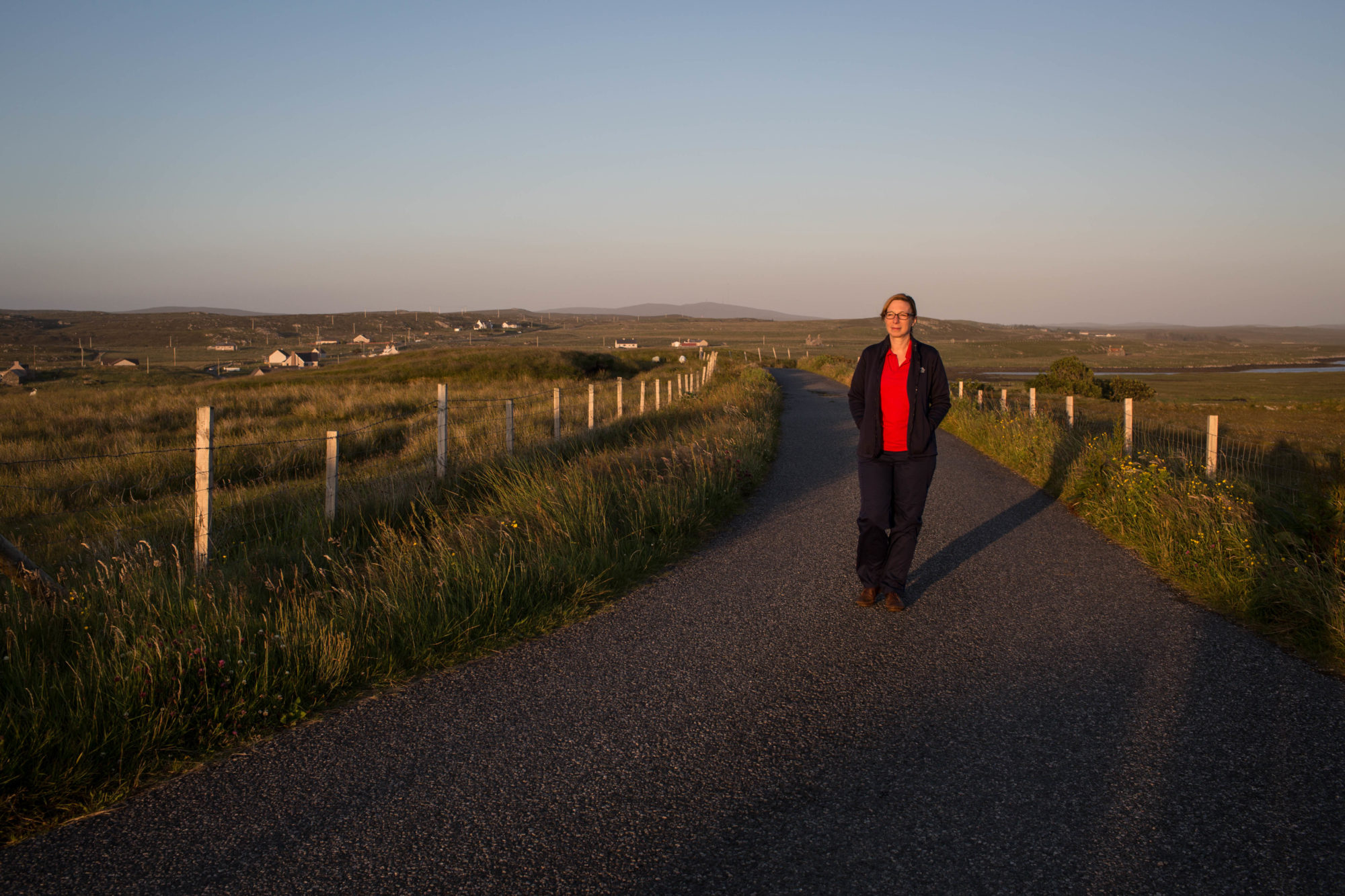
Debra Vickers, the NHS Western Isles Nurse Consultant for Cardiology, and her small team are working to transform the way heart disease is managed in a remote and rural island setting.
The nurse-led services she and her team have developed are delivering world-class care, and preventing deaths from heart disease. “Without the input of a cardiologist, we have to work very autonomously here,” she says. “It is a different way of doing things.”
There are five specialist nurses in the team, who all have advanced clinical assessment skills and are all active non-medical prescribers.
Previously, Debra was a Sister in coronary care, and a specialist nurse in cardiology in the North West of England, where she was lead nurse for a heart attack service. Moving north with husband Jimmy, Debra took up a British Heart Foundation-funded post to set up the Western Isles Heart Failure Service.
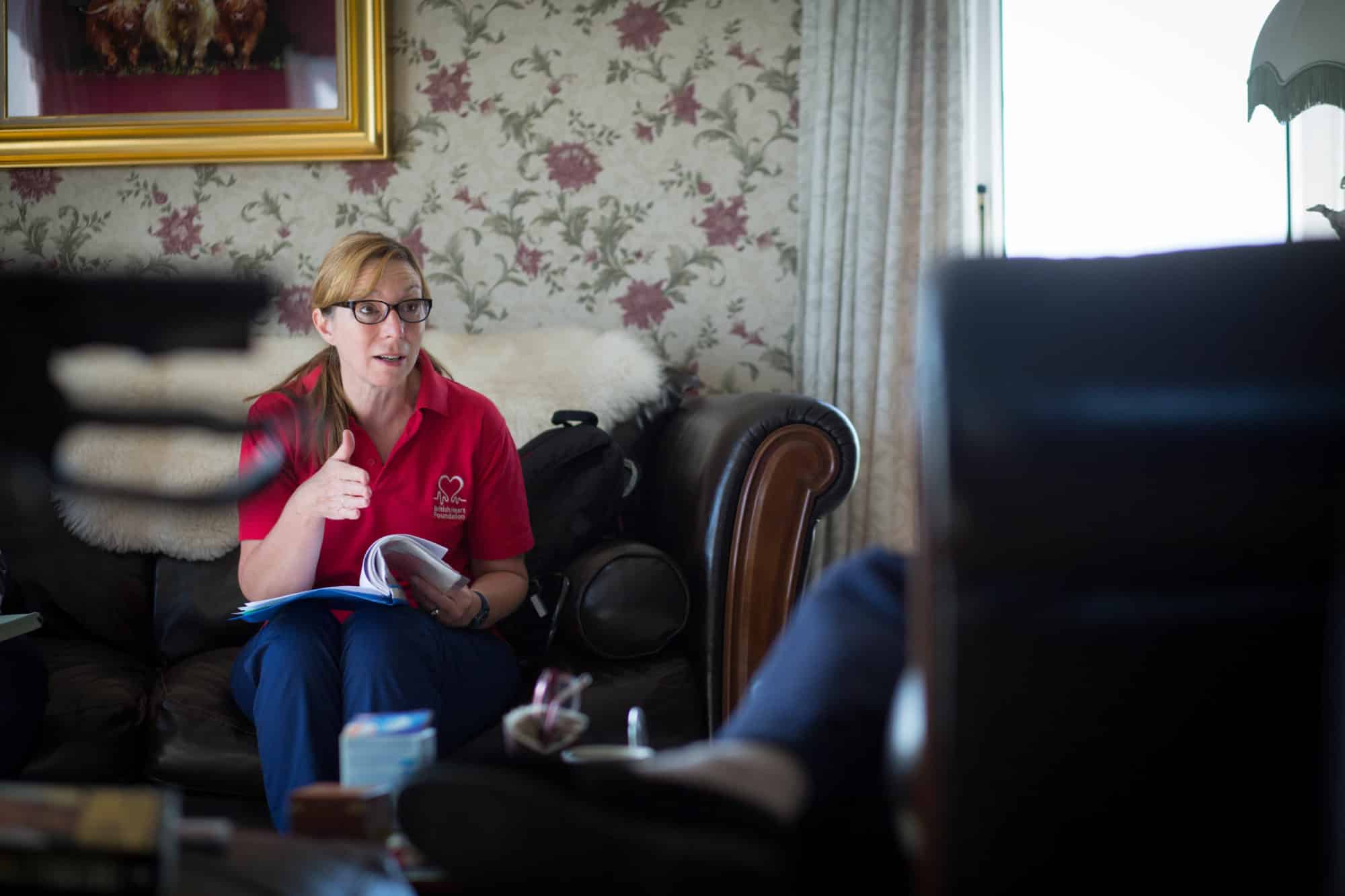 The cardiac nurse team she established now manages the care of patients who are living with heart failure right across the islands. Starting from the time of diagnosis, they are supported to monitor and manage their symptoms. The nurses work closely with patients and other healthcare staff to get the dosage of medicines just right, and to ensure that the optimum treatments are given.
The cardiac nurse team she established now manages the care of patients who are living with heart failure right across the islands. Starting from the time of diagnosis, they are supported to monitor and manage their symptoms. The nurses work closely with patients and other healthcare staff to get the dosage of medicines just right, and to ensure that the optimum treatments are given.
Some of the work of heart failure service is about ensuring that patients receive palliative care. “That means giving people time to think about what they want, being person-centred, honest and open,” says Debra. “It demands good communication, integrity, and clarity, as people progress through the disease trajectory.
When the heart failure service was up and running from the Butt of Lewis to Barra, the Western Isles Health Board took over the funding from the British Heart Foundation and developments have continued: the team has introduced an innovative cardiac rehabilitation service; there is a rapid-access chest pain clinic and now a service which aims to identify people with Familial Hypercholesterolaemia, a genetic cause of high cholesterol levels.
The team has also opened the cardiac rehabilitation service to people who are found to be at high risk of cardiovascular disease – the first service in Scotland to do so.
There is no doubt about impact. In the first three years following the introduction of the heart failure service, hospital bed days related to heart failure in the Western Isles came down by more than 60%. “We are a very pro-active nursing service ,” says Debra.
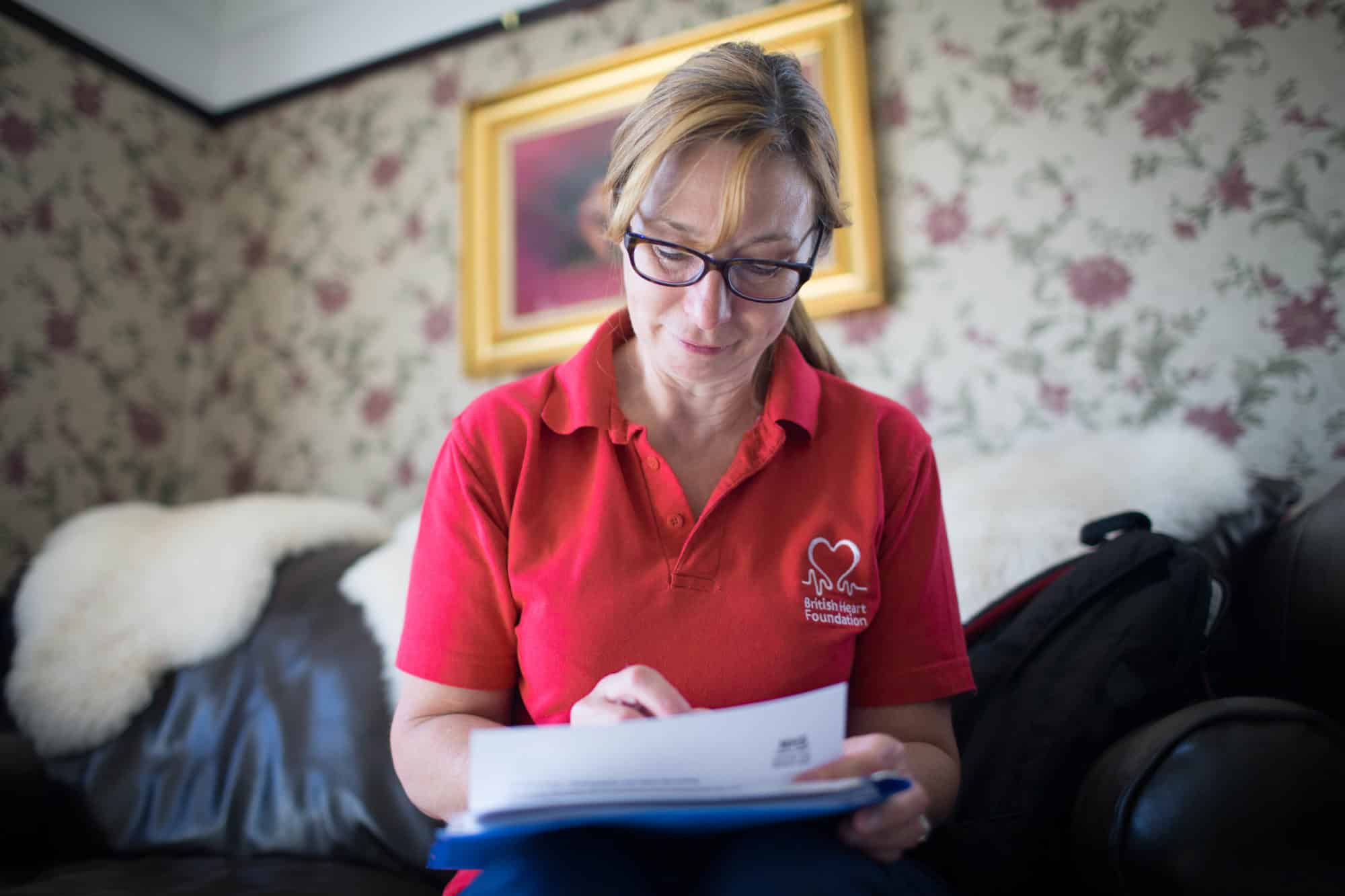 As part of the Queen’s Nurse programme, Debra and her colleagues are exploring how to ensure that people who suffer heart attacks on the Western Isles can benefit from the latest evidence-based approaches to patient care.
As part of the Queen’s Nurse programme, Debra and her colleagues are exploring how to ensure that people who suffer heart attacks on the Western Isles can benefit from the latest evidence-based approaches to patient care.
One type of heart attack happens when a coronary artery is blocked by a blood clot. Swift identification and treatment can dissolve the clot, preventing damage to the heart. If thrombolysis – a clot-busting drug – is given quickly, the chances of recovery are good.
“On the mainland, the ambulance service usually takes patients to the nearest heart attack centre for an urgent procedure called coronary angioplasty. In remote and rural areas like ours, where there is no heart attack centre, we have to rely on giving thrombolysis urgently and it can be a very difficult decision to make. There is a chance of complications related to the drug, and sometimes working out the individual risks and benefits can be challenging, and this can lead to delays in treatment.”
So Debra has been working with others to improve this clinical pathway. “It’s really very exciting. But we need to know that the new system won’t lead to unnecessary Air Ambulance transfers, and that it improves patient outcomes,” says Debra, whose team is undertaking detailed case-by-case analysis, and sharing this learning with Scottish Ambulance, Emergency Department, General Practitioners and Practice teams.
Patients and their families know that Debra and the cardiac nurses are doing everything possible to take care of them. “They’re like the railings at my door,” says Bernard. “Before they were there I couldn’t go out when it was windy for fear of being blown over. I’m not afraid to go out now. It’s the same with the nurses – just knowing they are there is my safety net. They explain and listen as well. And I certainly wouldn’t have anyone else adjusting my medication.”
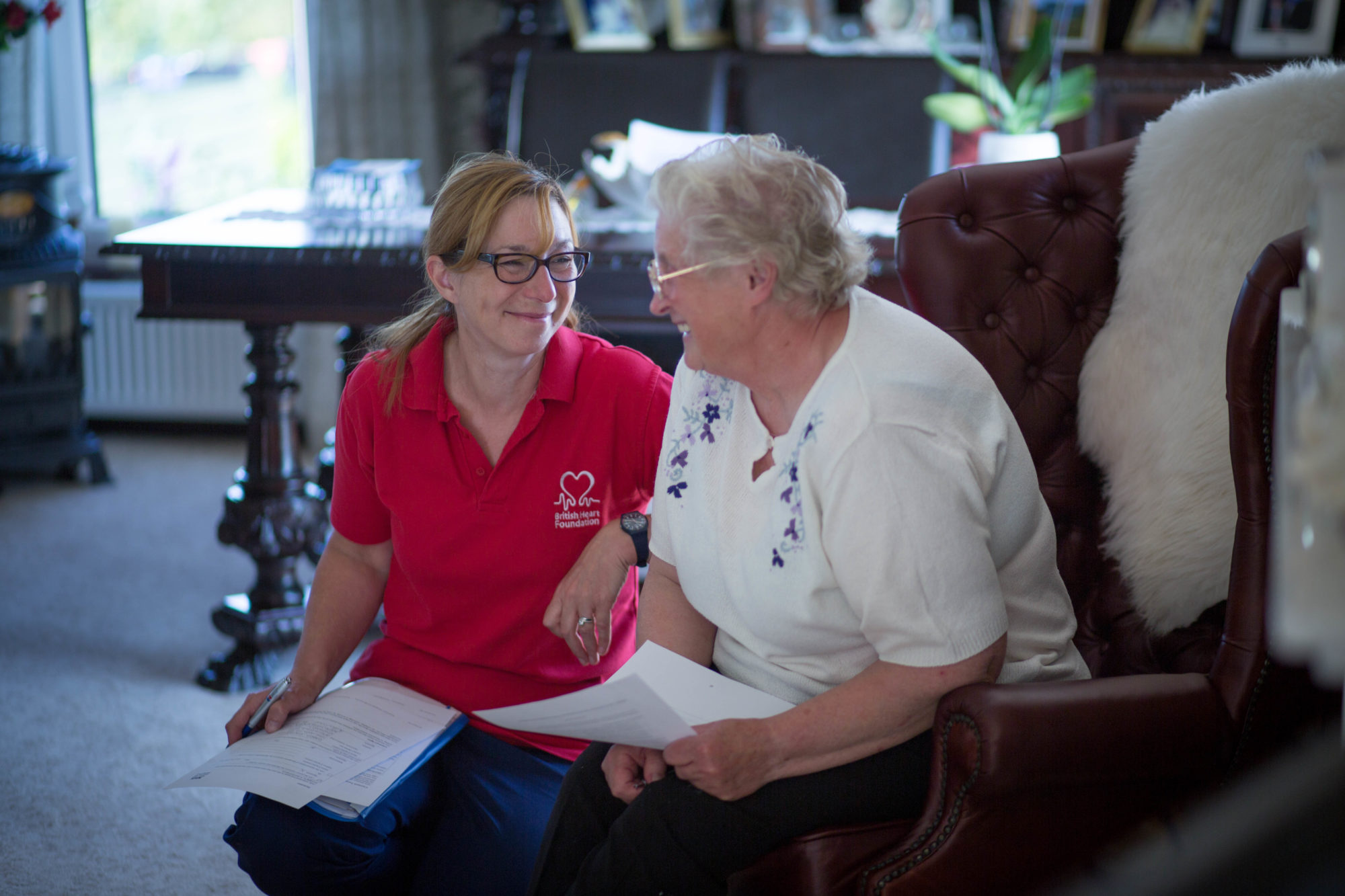 Bernard’s wife Kathleen appreciates all the care that the cardiac nurse team gives her too. “They all ask how I’m doing and are very caring of us both,” she says.
Bernard’s wife Kathleen appreciates all the care that the cardiac nurse team gives her too. “They all ask how I’m doing and are very caring of us both,” she says.
On the 80-acre croft that she and Bernard have farmed since moving to Great Bernera in 1994, Kathleen rears a small herd of prize-winning pedigree Highland cattle. Debra walks down to the field with her to see new calves, Lily and Cameron, chatting as they go.
With the sunlight glistening on the sea loch below, Kathleen rattles a feed bin and calls Poppy, the black Highland cow she was given to mark a milestone birthday. “This is my sanity,” she says. “Without it I’d be done.”
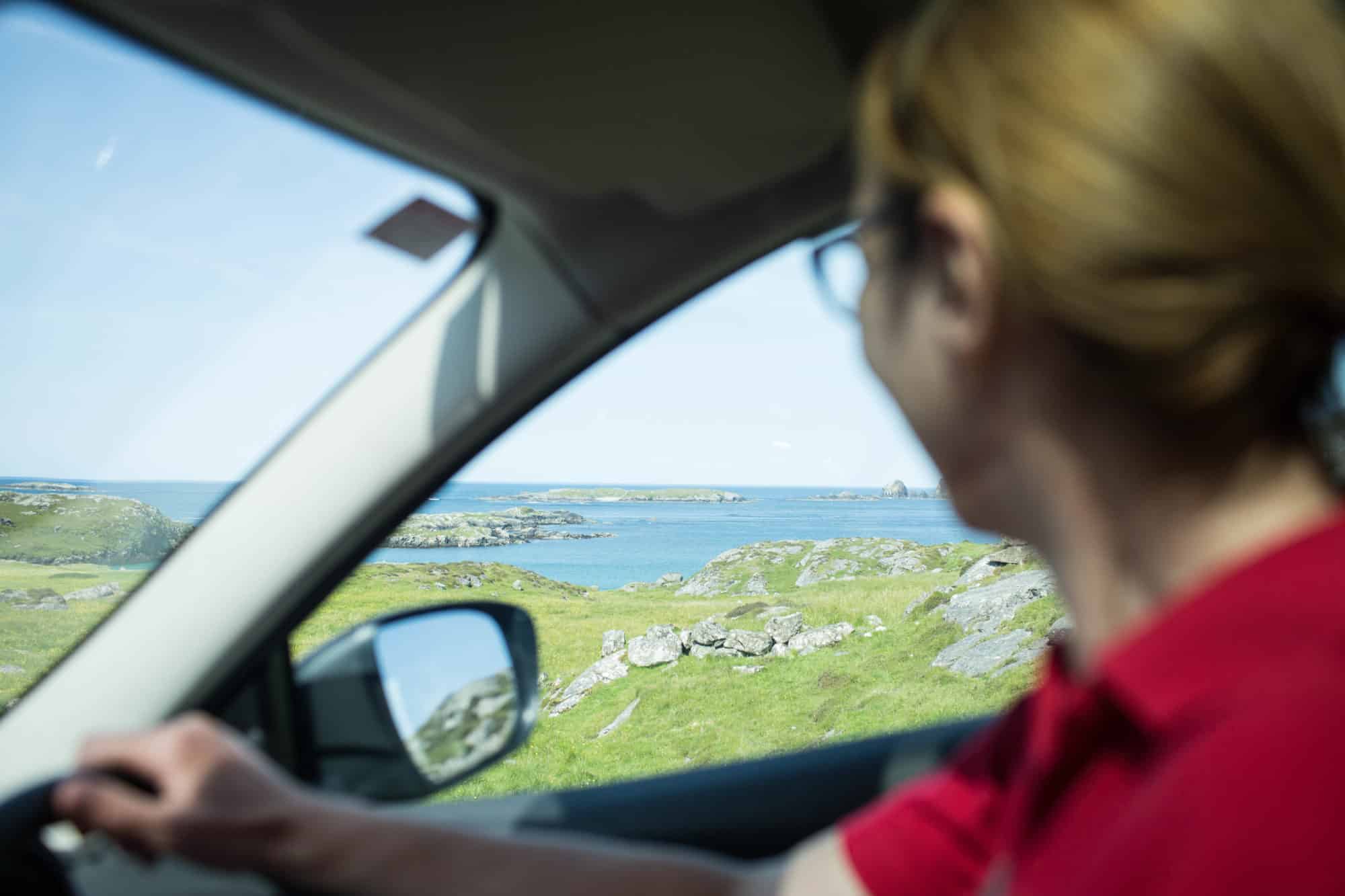
Debra is aware of the psychological strain that living with heart disease can impose to patients and their carers. The cardiac nurses now screen for signs for anxiety and depression every time they see one of their heart failure patients.
“I have found enormous professional and personal fulfilment here,” says Debra, who has discovered a passion for coastal rowing, which she does in Florence, a St Ayles skiff based near where she lives on the West Side of Lewis. “It’s a great way of life, and I really enjoy the work that we do as a team.”
Debra reckons there will never be an end to the need for development, and she and the cardiac nurse team have plenty of patient care improving ideas. “It’s about identifying what people need to make their lives easier, and doing your very best to get it for them,” she says. Becoming a Queens Nurse and going through the development programme has made me even more passionate about community cardiac nursing, and is helping me to find ways to meet challenges head on.”
